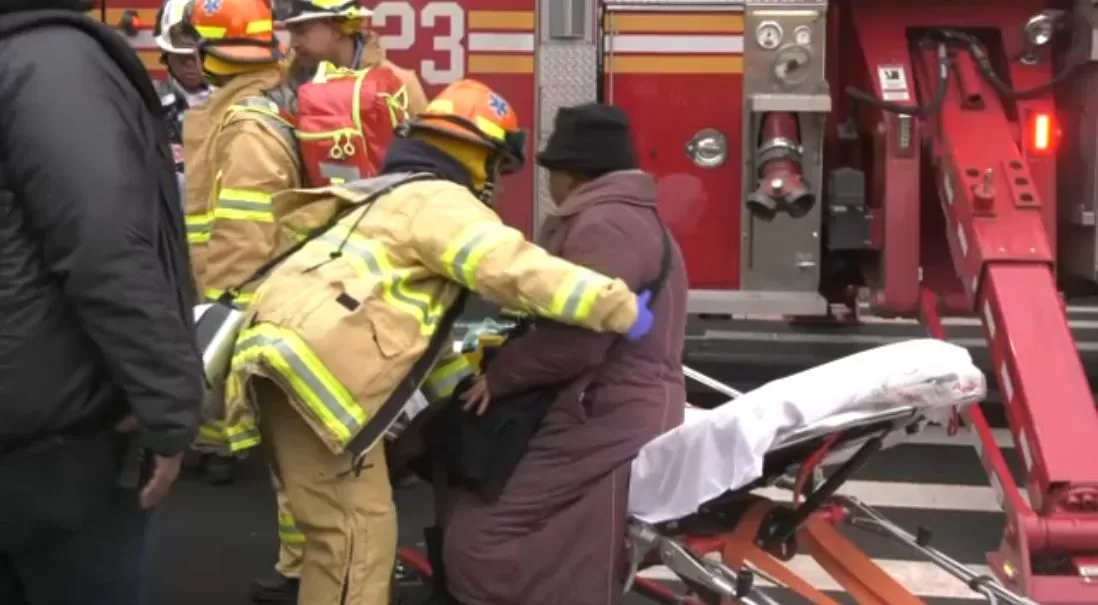At a time when credit cards and other electronic payments are the main payment method worldwide, cash survives in the United States, partly because of the high fees imposed on card payments, and partly because of the existence of millions of illegal workers who live in a parallel circuit.
Although the percentage of cash payments fell to 16% in 2023, it remained the third most used payment method that year, behind credit and debit cards, according to the annual report on consumer payment choices by the US Federal Reserve (Fed).
The central bank says cash use was driven by in-person purchases and a preference for coins and bills among two categories of the population: low-income consumers and those over 55. It does not name the category, but there is a third category: illegal immigrants.
For recipients, the main reason why merchants prefer this method is the commission of up to 4% per transaction charged by credit card companies and payment applications, economist Curtis Taylor, professor at Duke University (North Carolina), told EFE.
That’s why in cities like Los Angeles the “cash only” policy is very common, especially in the typical Mexican food carts that drive around the city, according to Manuel Chacón, a Spaniard who until a few months ago lived in this California city, who told EFE. The same thing happens with street fruit and vegetable stands throughout the country.
Similarly, New York is full of establishments that hang the sign ‘cash only’ on their doors, especially in the Chinatown neighborhood, in some areas of Brooklyn, and, as in LA, in the legendary food trucks that can be found on practically every corner of the city.
TAXI DRIVERS, FRUIT SELLERS, BICYCLE WORKSHOPS OR BRICKLAYERS
New York’s yellow taxis also offer two fares, with the cheapest one being for those willing to pay in cash.
This form of payment is even recommended in bicycle repair shops: “I went to a shop to fix a broken chain on my bike and the mechanic offered me a lower price if I paid in cash,” John Williams, a young American living in the Big Apple, told EFE.
And it is also common in other sectors, such as construction: Rosa Torres tells EFE that when she hired a team of bricklayers to build a staircase in her house in New Jersey, they told her that if she did it without municipal permits, the work would be cheaper but she would have to pay in cash or by transfer so as not to report to the authorities. The bill came to $3,000.
Torres also says that in Miami, where he lived for a few years before moving to New Jersey, restaurants explained to customers that, “because of taxes,” the price of food was more expensive if they paid by card.
A Brooklyn construction company that prefers not to give its name employs legal and illegal workers, the latter paid with envelopes full of hundred-dollar bills every two weeks, and the money escapes any official radar.
A LEGAL BUT DANGEROUS PAYMENT METHOD
Using this method of payment has “few advantages” for the economy, because “it facilitates black markets such as drugs, and tax evasion, such as paying someone under the table,” Taylor explains.
However, the law does not prohibit establishments from favouring cash payments, which is beneficial for small businesses that “tend to operate with narrow margins and cannot afford such commissions,” the professor points out.
However, he points out that cash is less secure, because “it is susceptible to theft, embezzlement or loss and also requires frequent visits to the bank.”
High fees associated with POS terminals led a group of New York City retailers to sue Visa and Mastercard in 2005 for charging merchants fees each time customers used their cards on the devices.
Last June, a federal judge in the Eastern District of New York formally rejected a $30 billion settlement between the two companies and the group of sellers, prolonging a decades-long litigation that highlights the complicated coexistence between the two payment methods.
___________________
We invite you to visit us on the new NY1 Noticias channel on WhatsApp. There you will find the most relevant news about what is happening in New York, as well as other coverage about the rest of the country, Latin America and the world. Click here in this link to access the channel. We thank you in advance if you become one of our followers and express your reaction to what we publish with an emoji.






